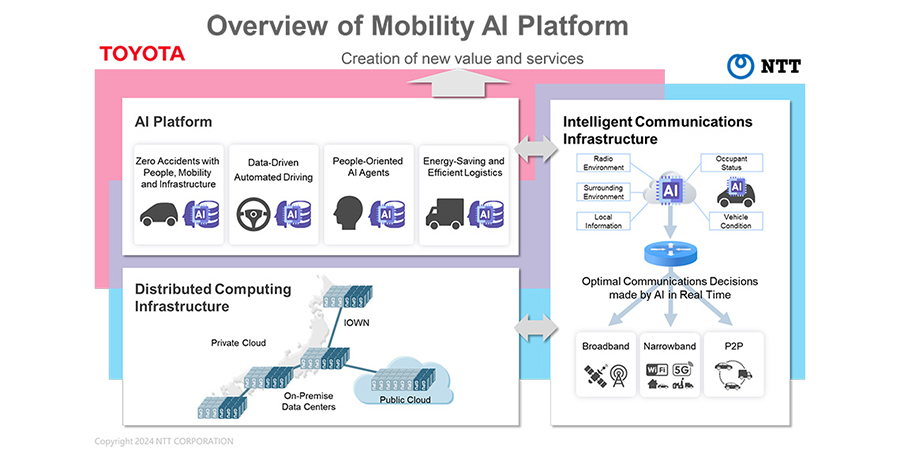Toyota Motor Corporation (Toyota) and Nippon Telegraph and Telephone Corporation (NTT) have agreed to work together in the areas of mobility and AI/telecommunications to create and strive for a society with zero traffic accidents.
In their past collaborations, both companies have found that they share common values, such as contributing to society through technology and industry development, focusing on people, and making global contributions starting in Japan.
Also Read: Maxis, Blueshark and JomCharge Promote E-mobility Adoption in Malaysia
A Society with Zero Traffic Accidents
Now, they plan to deepen their collaboration to achieve a society with zero traffic accidents as the first step towards creating a safe and free mobility society. To reach a society with zero traffic accidents, it is important to craft an infrastructure that connects people, mobility, and infrastructure, along with advancing and developing future automated driving technology based on data-driven technology.
Toyota is working on Software-Defined Vehicles (SDV) with a focus on safety and security. As SDV evolves, it will be crucial to establish infrastructure like high-speed communication networks, AI systems for processing large amounts of data, and computing infrastructure. Through this partnership, NTT, known for its telecommunications expertise, and Toyota, will collaborate to build a Mobility AI Platform that combines communication infrastructure with AI and computing platforms to process data intelligently. Their goal is to connect people, mobility, and infrastructure to create a safe, secure, and sustainable mobility society without traffic accidents.
Also Read: CelcomDigi and Yinson Partner to Accelerate E-mobility in Malaysia
Standardizing the Mobility Sector
The joint initiative includes developing and operating the Mobility AI Platform to work towards a society with zero traffic accidents. The platform aims to standardize the mobility sector and will be used by various industry, government, and academic partners who share the goal of attaining zero traffic accidents. The two companies plan to invest a total of JPY 500 billion by 2030 through this initiative.
Development of the Mobility AI Platform will start in 2025, with social implementation and collaboration with partners beginning around 2028. The goal is to achieve widespread adoption by 2030. Key initiatives to achieve a society with zero traffic accidents include a three-pronged infrastructure collaboration to prevent collisions and the development of advanced driving support and automated driving systems based on data and AI learning.
Elements of the Mobility AI Platform include a distributed computing platform, intelligent communication infrastructure, and an AI infrastructure to support mobility AI learning and inference from various data sources.
Mobility News:
Singtel and Hyundai Motor to Develop Singapore’s Smart Manufacturing and Mobility Technologies
Singapore’s M1 Elects Pareteum to Power Asia Pacific Mobility Services





